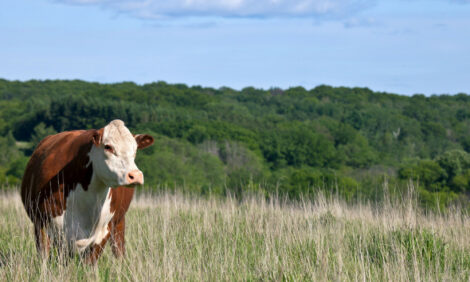



Researchers Collaborate on Forage and Silage
OKLAHOMA, US - The Samuel Roberts Noble Foundation and Forage Genetics International have entered into a multi-year research collaboration focused on improving alfalfa for a broad range of applications, including forage, silage and industrial uses.As part of the collaboration, Forage Genetics International (FGI) provides a gift to advance the Noble Foundation's infrastructure and research, education and outreach programs as well as provide additional funding for targeted research in alfalfa for the next decade. In return, FGI obtains an option to commercialize Noble Foundation technologies in alfalfa through royalty-bearing licenses. Specific financial terms of the agreement were not released.
"The Noble Foundation and FGI have worked together for almost a decade on various projects," said Michael A. Cawley, President and Chief Executive Officer. "This collaboration allows us to expand our interaction to focus on improving and enhancing the value of alfalfa. This relationship combines our scientific expertise with FGI's regulatory understanding and commercialization pipeline to deliver new technologies to agricultural producers."
As with all legumes, alfalfa plays a key role in cropping systems around the world. Legumes, such as soybean, clovers and peanuts, contain higher protein and fix a significant amount of atmospheric nitrogen, making them an economical and environmentally-important resource. According to the National Alfalfa and Forage Alliance, alfalfa contributes more than $7.5 billion to the U.S. economy.
"The Noble Foundation's basic research on engineering metabolic pathways has generated an exciting new opportunity to improve forage quality and expand the potential industrial uses of alfalfa," said Mark McCaslin, President of FGI. "The forage genomics and metabolomics programs at the Noble Foundation are cornerstones to understanding gene function and driving new trait discovery, and have the potential to greatly increase the value of alfalfa worldwide. In the next 10-20 years we will be able to re-design crops like alfalfa for optimum performance under various growing environments and for various end uses."
In recent years, the Noble Foundation's basic plant researchers have focused on understanding and improving legumes. The Noble Foundation is recognized internationally for its efforts to advance the legume Medicago truncatula as the genomic model for the study of all legumes, including economically significant crops such as soybean, alfalfa, clover and peanut.
The Noble Foundation was a catalyst in the international effort to sequence the DNA (genome) of M. truncatula, and today continues to develop and disseminate genomic resources for the scientific community from this project. Importantly, this collaboration aligns with the Noble Foundation's mission to assist farmers and ranchers. The Noble Foundation performs fundamental plant science research, plant breeding and agricultural programs, such as consultation and education, to achieve this important objective.
The Samuel Roberts Noble Foundation, Inc., headquartered in Ardmore, Okla., is an independent, nonprofit institute conducting plant science research, plant breeding and agricultural programs to enhance agricultural productivity, which influences agriculture regionally, nationally and internationally. The Noble Foundation also provides grants to nonprofit charitable, educational and health organizations.
Forage Genetics International a wholly owned subsidiary of Land O'Lakes, Inc., is the world leader in the development, production and marketing of alfalfa germplasm and traits that add value to their seed customers, and to livestock producers and other alfalfa end users.
TheCattleSite News Desk


